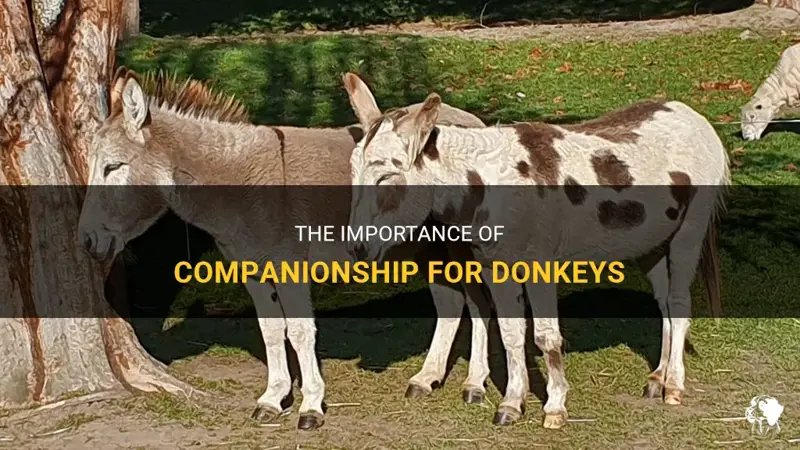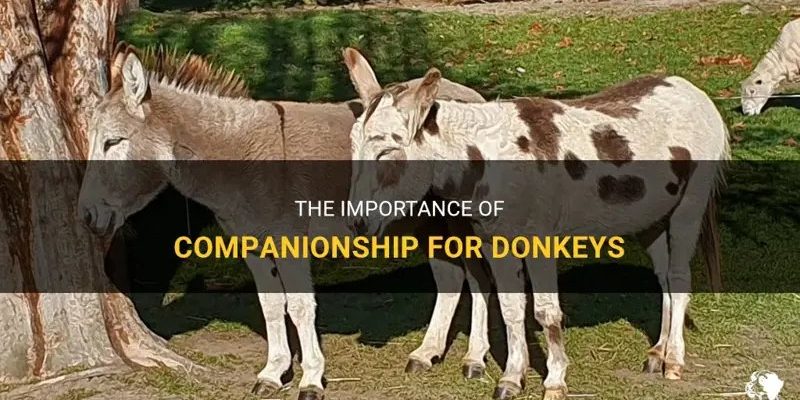
Imagine you’re at a party and you realize you’re the only person there without a buddy. You might feel a bit awkward, right? Well, that’s how donkeys feel when they’re alone. These animals are naturally social creatures, and they thrive on companionship. Let’s dive deeper into their social needs and explore why having company is crucial to their happiness and well-being.
Understanding Donkey Social Behavior
Donkeys are deeply social animals. In the wild, they form strong bonds within their herds. These friendships are not just about companionship; they provide safety against predators and a sense of belonging. Donkeys communicate with each other through *various vocalizations* and body language, making it clear when they are happy, stressed, or in need of support.
Here’s the thing: when donkeys are deprived of social interactions, they can experience mental stress and health issues. They may become depressed, exhibit destructive behaviors, or show signs of anxiety. Think of it this way—imagine if you were isolated for weeks without talking to another person! That kind of loneliness can be overwhelming.
If you’re considering adopting a donkey, keep in mind that they do best when they have another donkey (or a similar animal) to bond with. This is true whether you’re looking at a miniature donkey or a standard-sized one; both crave companionship.
Why Companionship Is Essential for Donkeys
The need for companionship isn’t just a “nice to have”; it’s a *must have* for donkeys. These animals have evolved to live in groups, relying on one another for social grooming, protection, and even play. When donkeys have friends, they engage in mutual grooming—a behavior that strengthens their bonds and promotes emotional well-being.
Additionally, having a companion can help mitigate negative behaviors. For example, a lonely donkey might develop habits like pacing or excessive braying, which can lead to stress and other issues. When they have a friend, they are often calmer and more content.
Here’s an interesting fact: donkeys can form emotional attachments not just with their own kind but also with other animals, like horses or even goats! This flexibility can make it easier for owners who might not want to keep multiple donkeys.
Signs of Loneliness in Donkeys
So, how can you tell if your donkey is feeling lonely? Here are some common signs to watch for:
- Calling Out: If your donkey is braying excessively or whining, it could be their way of expressing loneliness.
- Destructive Behavior: Biting fences, digging, or other destructive actions may indicate they’re bored or anxious.
- Lack of Interest: A lonely donkey might stop engaging in usual activities, like playing or grazing.
- Isolation: If they prefer to stand alone rather than mingle with other animals, it’s a red flag.
If you notice these behaviors, it might be time to consider introducing a companion. Your donkey will thank you for it!
Choosing the Right Companion for Your Donkey
When it comes to selecting a companion for your donkey, there are a few things to keep in mind. First and foremost, compatibility is key. While donkeys thrive with other donkeys, they can also bond with other herd animals. Just make sure the new addition has a temperament that matches your donkey’s.
If you’re leaning towards another donkey, consider adopting one of the same size and age. Young donkeys often have more energy and can be more playful, while older ones might offer stability and calmness. You’ll want to assess how they get along–a slow introduction is often best.
Here’s a tip: spend some time observing how they interact before making a final decision. Look for signs of mutual interest, like nuzzling or playing. The goal is to create a happy, harmonious environment for both animals.
Creating a Comfortable Environment
Once you have a companion for your donkey, it’s essential to provide an environment that encourages socialization. Donkeys thrive in spaces where they can roam freely and interact. A large paddock or pasture is ideal, as it allows them to run, play, and explore together.
Make sure they have access to shelter and food as well. Remember, donkeys love to munch on hay, grass, and sometimes special treats like carrots or apples. Sharing meals can be a great bonding experience, and it’s a fun way to keep them engaged.
Also, consider adding elements that stimulate their minds, like toys or obstacles in their space. Just like kids, donkeys enjoy playtime, and it can strengthen their bond with their companion.
Bringing in New Animals: A Caution
Introducing new animals to your donkey’s environment can be a rewarding experience, but it’s essential to proceed carefully. A sudden change can cause stress not only for your donkey but also for the new animal.
Start by gradually introducing them through a fence or barrier. This allows them to get used to each other’s presence without direct contact. Observe their interactions closely; some huffing and puffing is normal, but aggression is a major red flag.
Once they seem comfortable with each other, you can allow supervised interactions. Make sure to monitor their behavior, providing ample space and time for them to adjust. Remember, patience is key!
In summary, donkeys are social creatures that thrive on companionship. If you’re considering bringing one home, think about adopting at least two, or introducing your donkey to other animals that can keep them company. Their happiness and health depend on these social connections.
By being attentive to their social needs and creating a comfortable environment, you’ll not only enhance your donkey’s quality of life but also forge a deeper bond with them. So next time you see a lonely donkey, remember: they’re just looking for a friend. After all, we all need a little companionship now and then!

